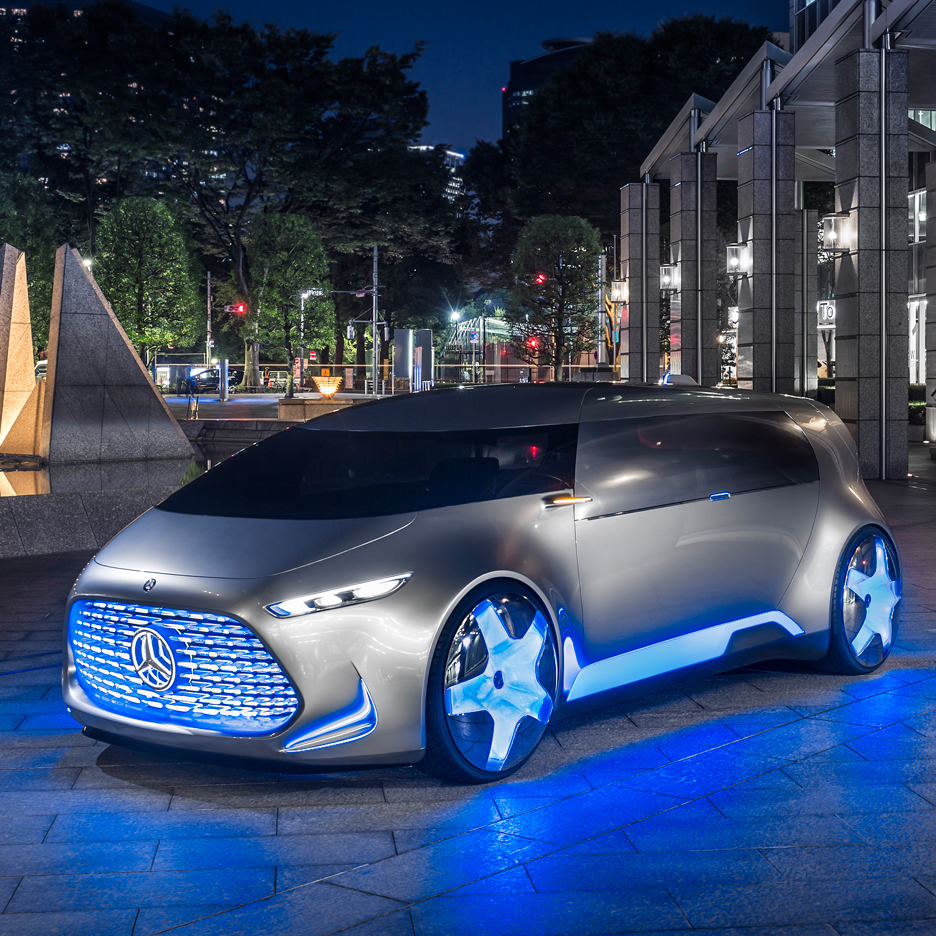This week on Dezeen: Chinese artist Ai Weiwei accused Lego of "censorship" this week after the Danish toy brand refused to supply building blocks for his installation and Mercedes-Benz showcased its new concept vehicle designed for "urban trendsetters" (pictured).
Lego refused to supply Ai Weiwei with the colourful building bricks for fear of its brand being used to promote "political, religious, racist, obscene or defaming statements." In response, the artist posted a picture to his Instagram account showing a toilet bowl filled with Lego bricks.
German manufacturer Mercedes-Benz hit the headlines after revealing a self-driving car comprising a "hip living space" with hologram infographics and a sofa, while French auto brand Renault released images of its Le Corbusier-influenced vehicle.
David Chipperfield boycotted the opening of his Milan museum amid legal proceedings, and MAD's controversial plans for the George Lucas Museum of Narrative Art in Chicago were finally approved.
We published new visualisations of Foster + Partners' luxury residential tower in Manhattan and reported on Thomas Heatherwick's plans to convert a London coal yard into a canal-side shopping centre.
Debates surrounding the changing face of London's creative scene were revisited as the city's mayor Boris Johnson called on developers to prioritise culture as well as housing, while construction projects in Dubai continued to soar during what has been described as the city's "boom 2.0".
Serpentine Gallery director Julia Peyton-Jones, who launched the influential Serpentine Pavilion commission, announced her resignation after 25 years in the role. We also published a guide to help budding designers get their first job in the industry.
Popular projects this week on Dezeen included a series of cheeky illustrations depicting buildings having sex, a renovated mid-century home near Vancouver and Japan's "toilet of the year".
More architecture | More interiors | More design | More news

